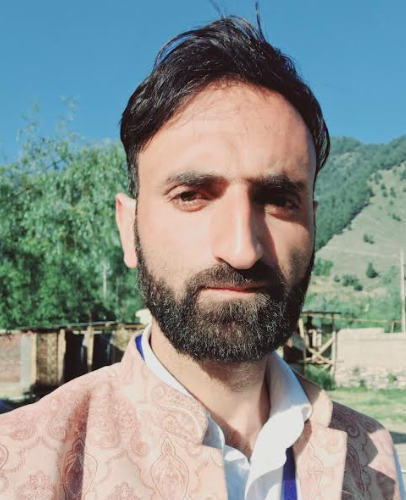 Throughout history, certain events stand out due to their profound impact on the collective memory of a community. The Battle of Karbala and the contemporary struggles in Gaza are such events for Muslims around the world. Both instances symbolize resistance against oppression and the human cost of conflict.
Throughout history, certain events stand out due to their profound impact on the collective memory of a community. The Battle of Karbala and the contemporary struggles in Gaza are such events for Muslims around the world. Both instances symbolize resistance against oppression and the human cost of conflict.
The Battle of Karbala took place on October 10, 680 CE, in present-day Iraq. It was a confrontation between the forces of Yazid I, the Umayyad caliph, and a small group of supporters and family members of Hussain ibn Ali, the grandson of the Prophet Muhammad. Husain’s refusal to pledge allegiance to Yazid, who he viewed as an illegitimate and tyrannical ruler, led to this tragic battle. Hussain, along with 72 of his companions and family members, including women and children, faced an army of thousands.
Despite being vastly outnumbered and suffering from a lack of water and supplies, Hussain and his followers stood firm in their resistance. The battle ended in a massacre, with Hussain and his supporters being martyred. The women and children were taken captive and paraded to the court of Yazid in Damascus.
The martyrdom of Hussain is a defining moment in Islamic history, particularly for Shia Muslims. It is commemorated annually during Ashura, a day of mourning and reflection. The events of Karbala symbolize the struggle against tyranny and injustice, serving as a source of inspiration for resistance movements throughout history.
The Gaza Strip, a small coastal enclave in Palestine, has been a focal point of the Israeli-Palestinian conflict for decades. Following the 1948 Arab-Israeli War, Gaza came under Egyptian control, and later, after the Six-Day War in 1967, it was occupied by Israel. The region has witnessed multiple uprisings, blockades, and military conflicts, severely affecting its civilian population. Since the early 2000s, Gaza has been governed by Hamas, a Palestinian Islamist political organization. The territory has been subject to a blockade by Israel and Egypt, restricting the movement of people and goods. This has led to dire humanitarian conditions, including shortages of food, medicine, and essential services. Periodic military conflicts between Israeli forces and Palestinian militants have resulted in significant civilian casualties and widespread destruction.
The population of Gaza, which includes a large proportion of refugees from the 1948 war, faces extreme hardships. The blockade and recurring violence have crippled the economy, with high unemployment rates and poverty levels. Access to basic necessities like clean water, electricity, and healthcare is severely limited. The psychological toll on the population, especially children, is immense, with many experiencing trauma and loss. Children in Gaza have been found eating grass and drinking impure water from drains due to the dire lack of resources.
Both Karbala and Gaza are emblematic of resistance against perceived tyranny and oppression. In Karbala, Hussain’s stand against Yazid's rule is seen as a moral and ethical battle, symbolizing the fight for justice and righteousness. Similarly, the people of Gaza, through their resilience in the face of blockades and military aggression, embody a spirit of defiance and endurance.
The catastrophic loss of life and suffering in both events is a poignant reminder of the human cost of conflict. In Karbala, the merciless killing of Hussain’s six-month-old son, Ali Asghar, by an arrow, epitomizes the brutal nature of Yazid's forces. In Gaza, the innocent children who suffer and die due to bombings, lack of food, clean water, and medical supplies can be seen as the modern-day Ali Asghars. In Karbala, one Ali Asghar was mercilessly killed; today, thousands of innocent Ali Asghars are being ruthlessly killed in Gaza. These parallels highlight the ruthless oppression faced by the innocent, underscoring the need for a stand against such barbarity.
The legacy of Karbala continues to inspire movements for justice and resistance around the world. It serves as a powerful narrative for those fighting against oppression. Similarly, the plight of Gaza remains a focal point in the discourse on human rights and international justice. The resilience of its people is a testament to the enduring human spirit in the face of adversity.
In Karbala, Hussain looked to the sky and gave a call, "Hal Min Nasirin Yansurna" - "Is there anyone to help me?" This call resonates today in the contemporary Karbala of Palestine. The suffering and cries for help of the Palestinians echo the plea of Hussain, urging the global community to stand against the ruthless attitude of Israel. In the present world, the call of "Hal Min Nasirin Yansurna" is given by Grand Ayatollah Ali Khamenei who has called for a boycott of Israeli products, emphasizing that economic resistance can weaken the oppressors. By adhering to this call, individuals worldwide can show their allegiance to Hussain’s cry for help. This form of non-violent resistance can contribute to the struggle against state terrorism and uphold the principles of justice and humanity.
The diaries of Karbala and Gaza, though separated by over a millennium, tell a story of continuous human struggle against injustice. They are testimonies to the resilience, courage, and determination of communities facing overwhelming odds. By reflecting on these events, we gain insights into the universal themes of sacrifice, resistance, and the pursuit of justice. Understanding these narratives not only honors the memory of those who suffered but also strengthens our resolve to advocate for a more just and peaceful world. The call of "Hal Min Nasirin Yansurna" from Karbala is as relevant today as it was centuries ago, urging us to stand in solidarity with the oppressed and take meaningful actions to support their cause.

